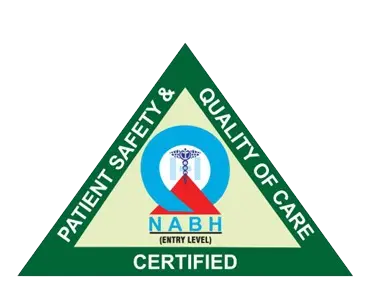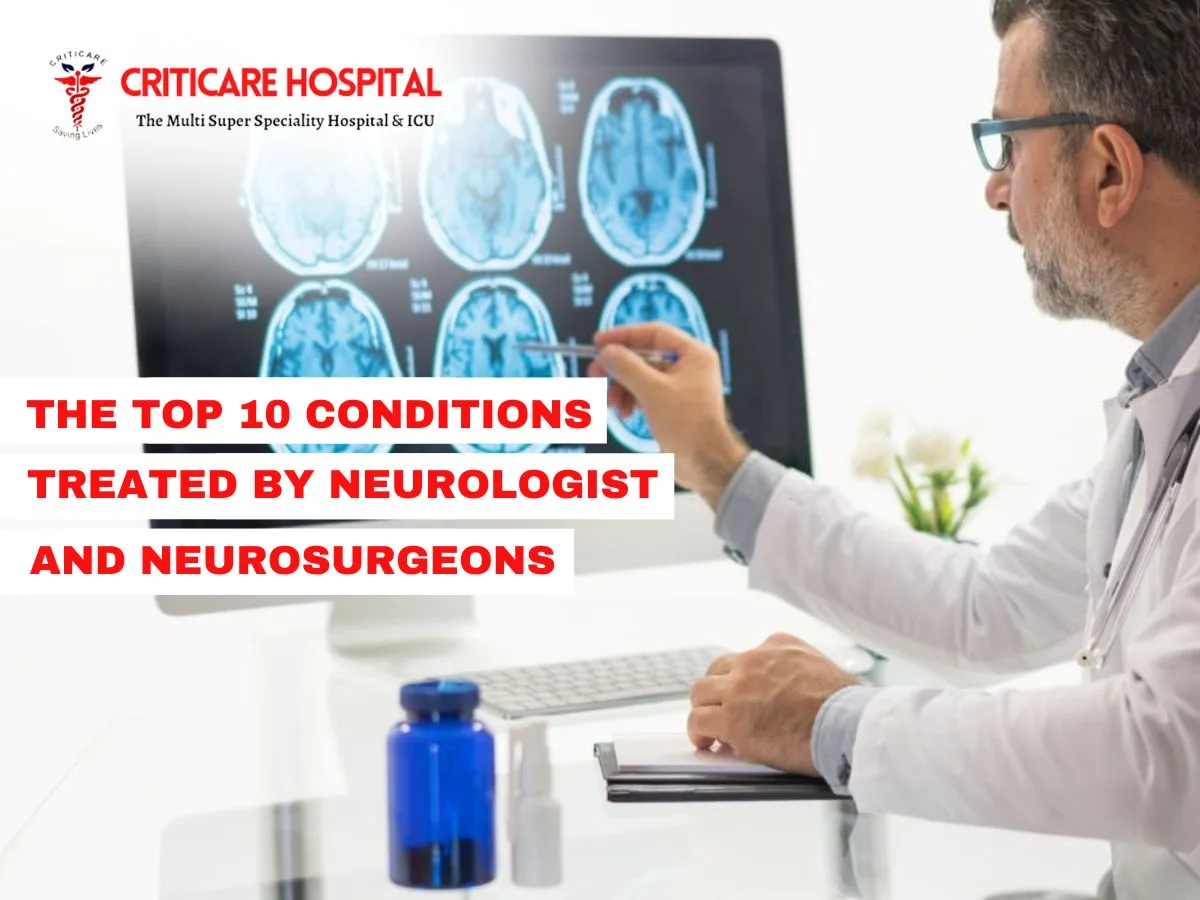Neurology and neurosurgery are specialized fields that focus on treating conditions related to the brain and nervous system. Neurologists and neurosurgeons play a crucial role in diagnosing and treating neurological disorders. These medical professionals undergo extensive training to provide the best possible care for their patients. Understanding the basics of neurology and neurosurgery can help patients make informed decisions about their treatment options.
Understanding Neurology and Neurosurgery
Neurology and neurosurgery are specialized fields that focus on treating conditions related to the brain and nervous system.
Neurologists and neurosurgeons play a crucial role in diagnosing and treating neurological disorders.
These medical professionals undergo extensive training to provide the best possible care for their patients.
Understanding the basics of neurology and neurosurgery can help patients make informed decisions about their treatment options.
An Overview of Neurological Conditions
Neurological conditions refer to diseases and disorders that affect the brain, spinal cord, and nerves. These conditions can range from common issues like headaches to more complex diseases like Parkinson’s. Neurologists and neurosurgeons are trained to diagnose and treat a wide range of neurological conditions. Having a comprehensive understanding of different neurological conditions can help patients seek appropriate care.
Headaches: Neurologists and neurosurgeons are experienced in diagnosing and managing various types of headaches, including migraines and tension headaches.
Epilepsy: Individuals with epilepsy experience recurrent seizures, and neurologists and neurosurgeons play a pivotal role in diagnosing and managing
this condition.
Movement Disorders: Disorders like Parkinson’s disease and essential tremor affect a person’s ability to control their movements. Neurologists and neurosurgeons work closely with patients to develop personalized treatment plans for these conditions.
Multiple Sclerosis: This is an autoimmune disease that affects the central nervous system, and it requires specialized care and management from neurologists and neurosurgeons.
Stroke: A stroke occurs when blood flow to the brain is interrupted, leading to potentially severe consequences. Neurologists and neurosurgeons are trained to quickly assess and treat stroke patients to minimize damage.
Brain Tumors: Neurologists and neurosurgeons specialize in treating brain tumors, which often require advanced surgical techniques and collaboration with oncologists.
Neurodegenerative Diseases: Conditions like Alzheimer’s and Parkinson’s disease have a significant impact on a person’s cognitive and physical abilities. Neurologists and neurosurgeons work closely with patients to develop individualized treatment plans to manage symptoms and slow disease progression.
Cerebrovascular Diseases: These refer to conditions that affect the blood vessels supplying the brain. Neurologists and neurosurgeons play a crucial role in addressing conditions like aneurysms and arteriovenous malformations.
Spinal Cord Injuries: Neurologists and neurosurgeons are involved in diagnosing and developing treatment plans for individuals with spinal cord injuries. These injuries often result in significant physical and neurological impairments.
Chronic Pain Conditions: Many chronic pain conditions have neurological components that require expert evaluation and management. Neurologists and neurosurgeons play a crucial role in diagnosing and treating these conditions, often in collaboration with pain specialists.
By seeking appropriate care and consulting with neurologists and neurosurgeons, individuals can improve their quality of life and effectively manage various neurological conditions.
Common Neurological Disorders
Neurologists and neurosurgeons often treat a variety of common neurological disorders. These disorders can significantly impact a person’s quality of life and require specialized treatment. Examples of common neurological disorders include:
Migraines: debilitating headaches often accompanied by nausea, vomiting, and light sensitivity.
Multiple Sclerosis (MS): a chronic autoimmune disease that affects the central nervous system, leading to a wide range of symptoms such as fatigue, muscle weakness, and problems with coordination.
Peripheral Neuropathy: damage to the peripheral nerves resulting in pain, numbness, and weakness, typically in the hands and feet.
Epilepsy: a neurological disorder characterized by recurrent seizures. Alzheimer’s Disease: a progressive neurodegenerative disorder that affects memory, thinking, and behavior.
Parkinson’s Disease: a degenerative disorder that affects movement, causing tremors, stiffness, and difficulty with coordination.
Stroke: a sudden interruption of blood flow to the brain, leading to neurological deficits such as loss of movement or speech.
Neuropathic Pain: chronic pain condition caused by damage or dysfunction of the nervous system.
Early detection and proper management of these common neurological disorders are essential for better outcomes. Neurologists and neurosurgeons can help patients effectively manage and alleviate symptoms through a combination of medication, therapy, and lifestyle modifications.
Treating Brain Tumors and Cancer
One of the critical areas of focus for neurologists and neurosurgeons is treating brain tumors and cancer.
These conditions require specialized knowledge and advanced surgical techniques.
Neurologists and neurosurgeons work collaboratively with oncologists to develop personalized treatment plans.
Cutting-edge technologies and innovative therapies have significantly improved outcomes in brain tumor and cancer treatments.
Managing Epilepsy and Seizure Disorders
Epilepsy and seizure disorders can greatly affect a person’s daily life and require specialized care.
Neurologists and neurosurgeons play a vital role in diagnosing and managing epilepsy and seizure disorders.
Treatment options for epilepsy and seizure disorders include medications, surgical interventions, and lifestyle modifications.
Collaboration between neurologists, neurosurgeons, and other healthcare professionals is crucial for comprehensive epilepsy management.
Addressing Stroke and Cerebrovascular Diseases
Stroke and cerebrovascular diseases are urgent medical emergencies that require immediate intervention. Neurologists and neurosurgeons are trained to quickly assess and treat stroke patients to minimize damage.
Early recognition of stroke symptoms and rapid access to specialized care are crucial for better outcomes. Rehabilitation and follow-up care play a significant role in the long-term management of stroke and cerebrovascular diseases.
Dealing with Movement Disorders
Movement disorders like Parkinson’s disease and essential tremor can have a severe impact on a person’s mobility.
Neurologists and neurosurgeons work closely with patients to develop personalized treatment plans for movement disorders.
Medications, deep brain stimulation, and physical therapy are among the various treatment options available.
The expertise of neurologists and neurosurgeons is essential in managing and improving the quality of life for patients with movement disorders.
Managing Chronic Pain
Chronic pain conditions often have neurological components that require expert evaluation and treatment.
Neurologists and neurosurgeons play a crucial role in diagnosing and managing chronic pain conditions.
Treatment for chronic pain may include medication, physical therapy, injections, or surgical interventions.
A multidisciplinary approach involving neurologists, neurosurgeons, and pain specialists is often necessary for effective chronic pain management.
Treating Neurodegenerative Diseases
Neurodegenerative diseases like Alzheimer’s and Parkinson’s can significantly impact a person’s cognitive and physical abilities.
Neurologists and neurosurgeons work closely with patients to diagnose and develop individualized treatment plans for neurodegenerative diseases.
While there is no cure for most neurodegenerative diseases, treatments can help manage symptoms and slow disease progression.
Collaboration with other healthcare professionals, such as geriatricians and physical therapists, is essential in providing comprehensive care for patients with neurodegenerative diseases.
Addressing Spinal Cord Injuries
Spinal cord injuries can result in significant physical and neurological impairments.
Neurologists and neurosurgeons play a crucial role in diagnosing and developing treatment plans for spinal cord injuries.
Treatment for spinal cord injuries may involve surgical interventions, rehabilitation, and assistive devices.
Collaboration between neurologists, neurosurgeons, and rehabilitation specialists is vital for optimizing outcomes in spinal cord injury management.
Conclusion
Neurologists and neurosurgeons are highly skilled professionals who play a crucial role in diagnosing and treating a wide range of neurological conditions. From common disorders like migraines and multiple sclerosis to more complex diseases like brain tumors and neurodegenerative diseases, these specialists are equipped with the knowledge and expertise to provide personalized care for their patients.
Collaboration between neurologists, neurosurgeons, and other healthcare professionals is essential in offering comprehensive and effective treatment options. Early detection, proper management, and ongoing care are crucial for better outcomes in neurological conditions.
Whether it’s addressing chronic pain, managing movement disorders, or treating spinal cord injuries, neurologists and neurosurgeons are dedicated to improving the
quality of life for their patients. Through cutting-edge technologies, innovative therapies, and personalized treatment plans, these medical professionals are at the forefront of advancements in neurological care.
By understanding the top conditions treated by neurologists and neurosurgeons, patients can better navigate their treatment options, make informed decisions, and seek appropriate care. Remember, seeking prompt medical attention and maintaining regular check-ups are vital in managing neurological conditions and optimizing outcomes.
With the expertise and dedication of neurologists and neurosurgeons, individuals with neurological disorders can find hope, relief, and improved quality of life.




